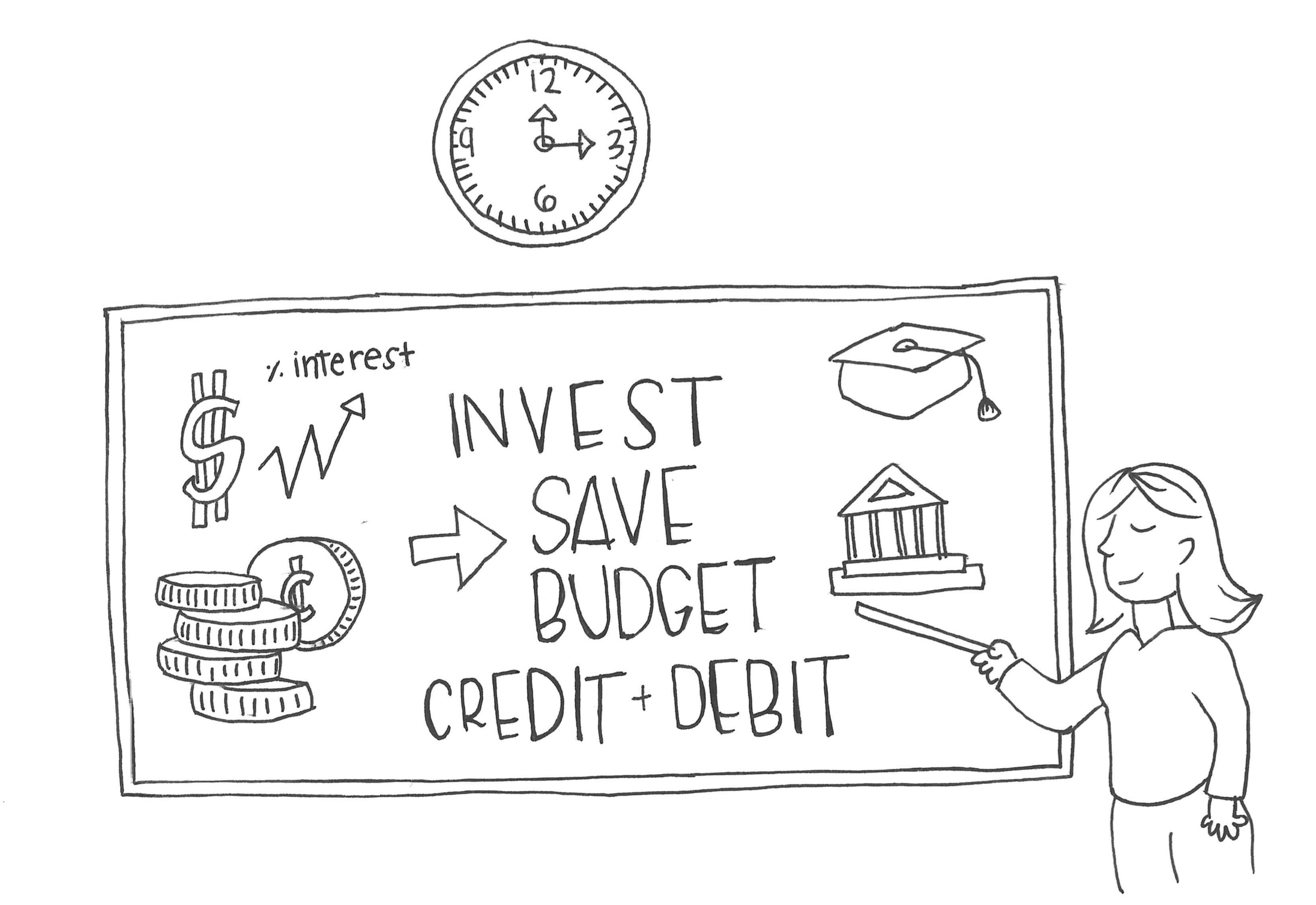On February 15, 2023, California state assemblymember Kevin McCarty introduced Assembly Bill (AB) 2927 — a legislation that requires one semester of personal finance education as a high school graduation requirement. Only 25 states nationwide have adapted this education; however, California students and teachers alike see the curriculum as key in preparing youth for post-high school life.
Crystal Rigley, a macroeconomics teacher at Berkeley High School, has designed and taught a curriculum that centers personal finance for the past nine years. The year-long elective teaches seniors the basic life readiness skills of navigating both personal finances, such as investing and credit, and how to efficiently plan for the future.
“Most students come into my class with little to no knowledge about their finances. They’re terrified to talk about them, let alone ready to enter the real world and deal with them,” Rigley said.
The first semester covers what Rigley refers to as the ‘four money moves:’ budgeting, investing, credit/debit and savings. The mini-units teach students budgeting for major purchases, understanding index funds, managing credit scores, dealing with debt and saving for retirement. In the spring, students focus on post-high school life: how to prepare for your “dream life,” career planning, resume and cover letter writing and salary negotiation skills.
“Students come into my class for various reasons. Sometimes it’s because their parents have done really well financially, and they wish to do the same, and other times, kids come in wanting to be financially educated in a way they’re parents aren’t,” she said. Regardless of why they join the class, her students end the year with a basic understanding of personal finance.
While AB 2927 would not apply to LWHS, as new curriculum requirements are discussed for public schools, LWHS and other independent schools thoroughly consider the adaptation of these courses as well.
According to Tabitha Paik ’24, a current LWHS senior who plans to major in economics, developing skills surrounding finance are crucial to be well prepared for financial independence. “It’s impossible to avoid. Everyone is going to have to deal with finance eventually, but what matters is if we know how to deal with it,” she said.
For five years, LWHS offered an applied mathematics elective taught by current math teacher, Ernie Chen. The spring-semester course focused on both understanding the math behind finance as well as some of the life skills that Rigley teaches in her classroom.
“For one semester, each student would be randomly assigned a place to live as well as a salary, and from there it was up to them to find out that given states tax rules, budget for the things they wanted and make strategic decisions about whether or not to purchase a car or gym membership,” said Chen.
In addition, every couple of class periods, students would have to deal with a “random life event” — for example, an increase in rent or a close friend’s destination wedding.
“[Through this exercise], they got to experience on a smaller scale what it’s like to be financially independent and all the variables you have to think about,” he said. Among other skills, students learned tax filing, pay stub interpretation, how the stock market works and the basics of loan payment. The course was received extremely well by students, such that there was more demand than spaces available. “By year four or five of me teaching [applied mathematics], I was turning kids away,” Chen said.
But, when the class transitioned online during the COVID-19 pandemic, enrollment decreased significantly. Consequently, the class was terminated after the 2020-2021 school year. Unfortunately, due to staffing issues, this class has yet to be re-implemented into the curriculum as a math elective post-COVID-19. However, both Pre-Calculus and Algebra 2 Accelerated courses teach mini-units about taxes, investing and interest rates, respectively.
“I wish it was a required class. I think it’s so important to learn things like how to invest and save, and how to set up a Roth IRA,” Henrietta Benziger ’24, co-leader of LWHS’s Financial Literacy Club said. The entirely student-run club utilizes materials open to the public to host club meetings where students can at least begin having some of the very important conversations around money and money management. “I had a lot of anxiety around spending money. What helped overcome that was having awareness of my finances and being in control,” Benziger said.
But one of the biggest reasons why personal finance is not already incorporated into school curricula is because conversations about money and finances can be incredibly uncomfortable, both personal and private. “We’re so privileged to go to a diverse school, but that also means when it comes to education surrounding finance, everyone is coming from a different background, with differing experiences and comfort levels,” Benziger said.
“Many parents don’t discuss personal finance with their children because they themselves are struggling with understanding and handling their finances,” Rigley said. However, for many students, incorporating this kind of education in the classroom is the only chance they will have at learning about finances before pursuing higher education.
If passed, AB 2927 would require one semester of personal finance for the graduating class of 2030 at public high schools. “Love it or hate it, all kids should be required to do it. It’s the best shot that we have to give kids a real chance,” Rigley said. In requiring curricula like this, personal finance and money management discussions will become a regular in schooling institutions.
While conversations around money are uncomfortable in nature, implementing finance into education allows youth the opportunity to destigmatize these topics early on and become more comfortable with their own finances. “[In simulating what it’s like to deal with and discuss finance,] students were able to ask questions and make mistakes, in what I would argue is one of the safest environments possible,” Chen said.
Whether integrated into other math curriculum or offered as a standalone course, personal finance students and teachers see finance education as important in preparing students for post-high school life. As kids leave high school, in many ways, their ability to navigate the future is partially based on whether or not they were taught the essential skills to strategically handle their finances. “Money can either be the tool that allows you to achieve your dreams or the shackle that holds you back,” Rigley said.






